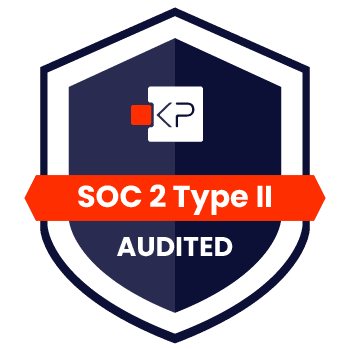Federal regulations require that commercial motor carriers maintain a Driver Qualification (DQ) file for each of their commercial motor vehicle drivers. The purpose of DQ files is to contain, in one place, all supporting documentation showing that the driver is fully qualified to operate the commercial vehicle. Many people struggle with determining what truly needs to be in the driver qualification files and what does not. In addition, many questions come up regarding how long various records need to be kept. Managing what is on file can pose a significant burden and fleets don’t want to have to hang on to data for too long, unnecessarily.
What is the Driver Qualification File?
A Driver Qualification File is essentially a collection of documents that shows the employee is “qualified” to operate a commercial motor vehicle. Putting together a complete Driver Qualification file involves collecting and filling out a variety of paperwork and documentation. From the drivers’ application and details of past driving records and employment to medical tests and other certification, it includes everything you need to confirm an employee is eligible to work, operate a commercial motor vehicle, and be prepared for an audit. The regulations under 49 CFR Part 391 lists requirements for Driver Qualification Files.
Who Needs a Driver Qualification File?
Complete Driver Qualification File records are required for any driver who operates a commercial motor vehicle. That can apply to vehicles over 10,000 lbs. and / or transports at least 8 passengers (including the driver), and/or transports hazardous materials. DQ files are needed even if the driver is salaried, a mechanic, the owner of the company, a part-time temp driver, is only driving one time, works for a private company, etc…
The criterion in this definition that confuses some is vehicle weight. The general weight criterion for which a CDL is needed is 26, 001 pounds. The weight criterion for which DQ file is required is 10,001 pounds. So, interstate drivers of vehicles between 10,001 and 26,001 pounds (not hauling hazmat) need to have a DQ file but do not need to have a CDL. This definition would require driver qualification files for drivers of vehicles over 10,001 pounds GVWR and for drivers of light-duty pickup trucks transporting placarded hazardous materials.
What Needs to be in a Driver Qualification File?
Pursuant to the FMCSA Record Retention & Recordkeeping Requirements (Part 391.51), the following needs to be in a driver qualification file:
- Driver’s application for employment
- Pre-employment questionnaire (if not included in the application)
- The initial MVR
- Certificate of road test (not required if the driver had to take a road test to obtain their CDL)
- The MVR used for the annual review
- Certificate of violations
- Annual review
- Medical card
- If you have a driver with a medical exemption, then the skill performance evaluation certificate or the medical exemption document should be included
How Long Should the Various Records be Kept?
- Driver Qualification Files – for as long as the driver is employed and for 3 years thereafter
- Within the driver qualification files, the following items may be removed after 36 months:
- MVR associated with the annual review
- Certificate of violations
- The note relating to the annual review of the driver’s driving record
- Medical examiner’s certificate (non-CDL drivers)
- The note relating to verification of medical examiner listing on the National Registry of Certified Medical Examiners
- MVR associated with the medical card
- Accident Register – 3 years
- Negative Drug Test Results – 1 year
- Positive Drug Test Results – 5 years
- Logs and supporting documents – 6 months
- DVIRs with defects noted – 90 days
- Inspection, repair and maintenance records – one year and for six months after the motor vehicle leaves the motor carrier’s control
For more information, check out the following Driver Qualification File Checklist to ensure each driver file is complete – https://csa.fmcsa.dot.gov/safetyplanner/documents/Forms/Driver%20Qualification%20Checklist_508.pdf
What Happens if the Driver Qualification File Basics are not Maintained?
In 2019, there were over 3,500 enforcement cases alone that averaged over $6,600 in fines per company, with the average cost of a Driver Qualification File violation fine over $600 per fine. The US Department of Transportation has the authority to conduct a driver qualification file audit any time FMCSA safety data indicates a problem with compliance and/or safety regulations. If your business is audited, it’s critical to have a driver qualification file management system in place to ensure you’re able to produce the requested paperwork and files to confirm compliance. You could see drivers disqualified or even face company-wide penalties, which can lead to wasted time and money for your company.
After a driver is hired, managing driver files becomes an ongoing burden as employers are required to keep files current. It is important to understand what the common DQ file violations are and how to prevent them from happening in your company’s driver qualification file management process.
Avoid These Costly Fines for DQ File Violations
| Violation | Average Fine | Top Fine | Type of Violation |
| Driver operates vehicle without having received physical exam within the past 2 years | $2,800 | $11,500 | Critical |
| Carrier fails to keep a driver qualification file for each driver | $1,236 | $2,130 | Critical |
| Carrier fails to have previous employer and driving record in qualification files, for drivers hired before October 30, 2004 | $1,833 | $2,680 | Critical |
| Driver’s qualification file is missing a copy of medical certificate | $1,577 | $2,670 | Critical |
| Driver operates vehicle w/invalid driver’s license or more than one driver’s license | $1,413 | $3,580 | N/A |
| Driver operates vehicle medically unqualified | $3,160 | $11,220 | Acute |
| Driver under 21 yrs. old operates a commercial vehicle in interstate commerce | $1,201 | $3,190 | N/A |
How Should You Store Driver Files?
It is a best practice to keep all your files in a secure location with controlled access because of the sensitive and confidential nature of the contents of the file. You may also want to keep more information than what’s required. If this is the case, you may want to maintain two sets of files: one file for FMCSA, and another file for everything else.
The importance of having your driver qualification files in order demonstrates that you are serious about following FMCSA mandates and shows you are doing everything you can to ensure you are hiring safe and qualified drivers. This translates into keeping the roads safer for everybody.
Sources:
“Would Your Driver Qualification Files Stand Up to an FMCSA Audit?”, Donald Jerrell.
“Driver Qualification File Management Services”, US Compliance Services.
FMCSA Website – https://www.fmcsa.dot.gov/.


